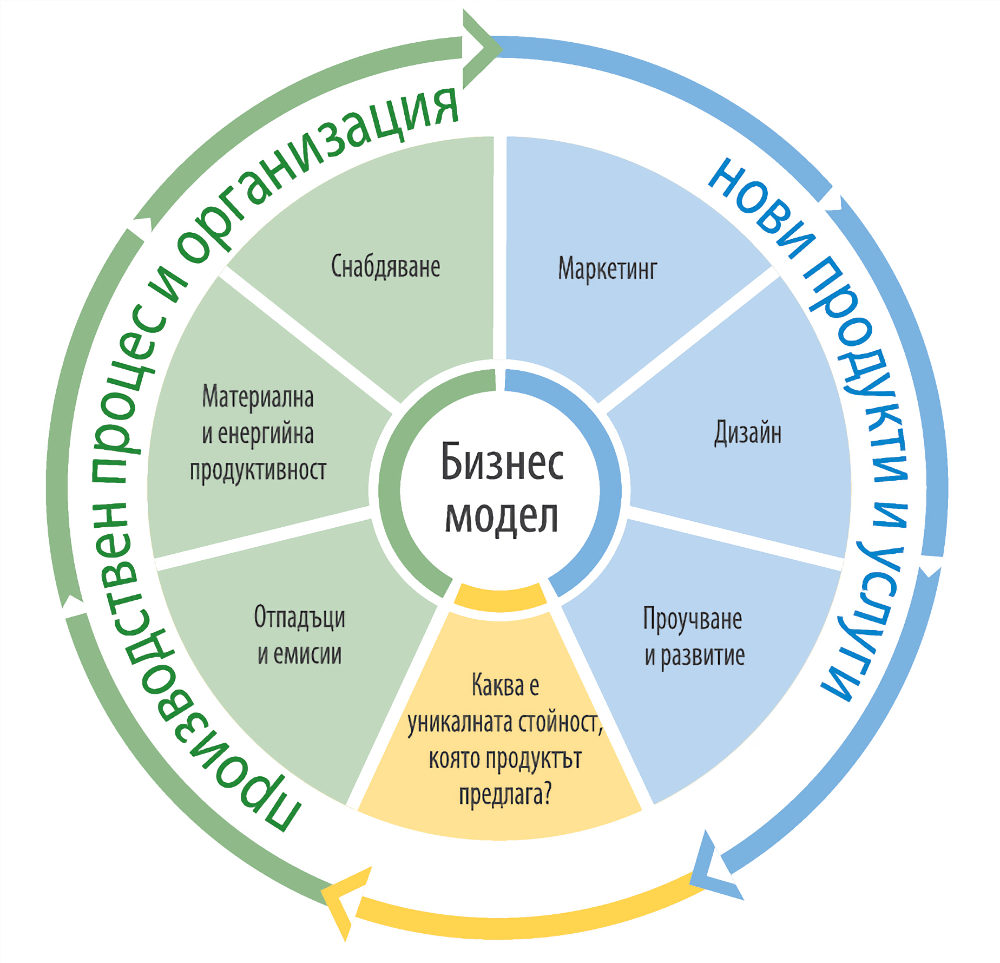Environmental innovation
Environmental or eco-innovation is the introduction of any new or significantly improved product (good or service), process, organisational change or marketing decision that reduces the use of natural resources (including materials, energy, water and land) and reduces the release of harmful substances throughout the life cycle.
Green technologies are a key element in addressing major environmental problems such as climate change, scarce natural resources and declining biodiversity. Viable technological solutions are already available to address many of the environmental challenges we face, but their commercialisation may face a number of obstacles.
Research is essential to realise the full potential of the fast-growing green industries sector and to drive rapid innovation and job creation.
Eco-innovation can be all types of innovation - technological and non-technological, new products and services and new commercial practices that create business opportunities and benefit the environment by preventing or reducing their impact or by optimising resource (including energy) consumption.
Eco-innovation is closely linked to the development and use of environmentally friendly technologies, as well as to the ideas of eco-efficiency and green production. The overall aim is to promote more sustainable production and consumption patterns. Practical examples of eco-innovation include processes for extracting valuable substances from waste water, more efficient food packaging, the production of building materials from recycled waste, environmentally friendly products and new management methods.
Companies developing and selling new eco-innovative products, services and technologies are motivated by the opportunity to access new markets and customer segments. The clear incentive here is to sustain and generate higher profits. Eco-innovation leading to improved resource productivity saves money by reducing material and energy costs. This type of "savings opportunity" is particularly linked to the innovation process and is the basis for initiatives such as "cleaner and leaner" production. The business case for material efficiency is increasingly relevant as commodity prices rise.
Many companies are introducing eco-innovations in their processes and products to comply with regulatory requirements, but also want to meet the increasing environmental and social standards applied by their strategic partners and customers (e.g. retailers).
Wheel of eco-innovation

Source: Eco-Innovation Observatory
Environmental entrepreneurs
The first attempts to define the "green" entrepreneur or eco-entrepreneur and to describe its characteristics were made in the 1990s. The term "green entrepreneurship" first appeared in the book "The Green Entrepreneur: Business Opportunities That Can Save the Earth and Make You Money" by Gustav Berle (1991). The definition is: "Green entrepreneurship takes responsibility for creating the world we dream of".
Very often the terms "green entrepreneurship", "eco-entrepreneurship" and "sustainable entrepreneurship" are used interchangeably. It is difficult to imagine that a green business can be solely environmentally sustainable without at the same time being socially sustainable (creating jobs, meaning and a social context) and economically sustainable (able to recover its costs and survive as an entity in the long term).
Sustainable entrepreneurship can become a driving force for the emergence of a new holistic sustainable system in the three main dimensions of economy, environment and society. Eco-entrepreneurs are change agents who destroy existing conventional production methods, products, market structures and consumption patterns and replace them with new, superior environmental products and services.
Characteristics inherent in green entrepreneurs:
- Act as entrepreneurs, implementing high-risk ideas
- Have strong intrinsic motivation linked to increased sensitivity to environmental issues
- They address environmental/social issues/needs consciously and this is at the core of their business activities
- Their business activities have a net positive effect on the natural environment and at the same time are financially sustainable
- Consciously seek to contribute to a more sustainable future by contributing both their social and environmental values
A distinction needs to be made between "green" management of existing companies and the conscious creation of business ideas that are "green" at their core. In the first case, the so-called "accidental eco-entrepreneurs", companies operate in an environmentally friendly way, but this is not a special focus or a deliberately sought effect, but a by-product. In order to distinguish between the two types of eco-entrepreneurs, the term 'green businesses' has been coined - those that put primary concern for the environment at the heart of their business model and seek to help socially and ethically transform their business sector. Such companies are becoming the norm rather than the exception around the world.
One danger here is that the term "green entrepreneur" may remain a hollow phrase that means everything and nothing at the same time, like the term "sustainable development". Claiming that economic, environmental and social goals are woven into a company's organisational logic and practices gives us no insight into how (or if) this is actually achieved. The danger of dishonest speculation with the words 'eco', 'organic', 'organic', etc. is always present and the only solution is to require every company to provide publicly detailed information about its production processes, the origin of its raw materials, the life cycle of the product, and progress towards measurable targets for reducing its environmental footprint. Companies that do not disclose detailed information on these matters to their consumers should immediately raise suspicions and should be required to be more transparent in order to dispel any suspicion.

